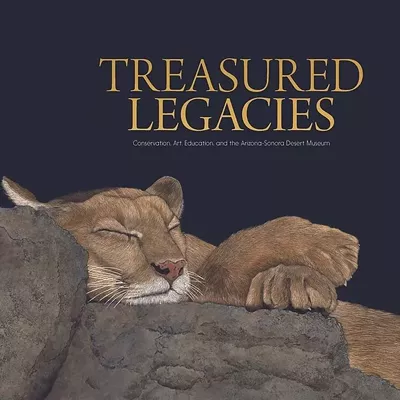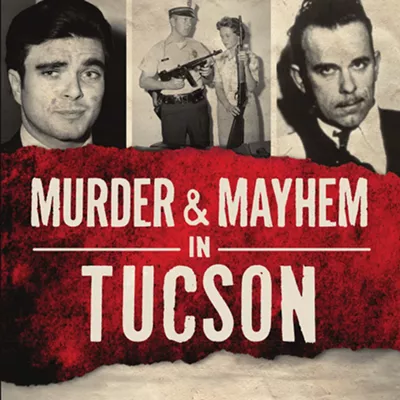There are benefits," observes the narrator in this new thriller, cramming her white hair into a bun—but her gun into her waistband—"to being small and faded." And she walks armed and unchallenged into an accused killer's hospital room.
That her appearance belies reality is just one of decommissioned FBI Special Agent Brigid Quinn's investigator's tools. Another is the "decommissioned" part of her title. As retired FBI, she doesn't have to follow the Agency's pesky protocol.
In Rage Against the Dying, Tucsonan Becky Masterman makes an impressive writing debut. She says that she didn't actually set out to start a mystery series. The book arose from a challenge she and her husband made to balance her busy life as an acquisitions editor of law enforcement and forensic examiners' medical textbooks, and her husband's less busy one as a retired cleric: Each should write a novel within a month's time. Her husband apparently beat the pants off her, page-wise, but she ended up with this character and a draft of this work.
In Rage Against the Dying, Brigid Quinn, a couple of years exiled to Tucson after shooting an unarmed bad guy, is now retired from the Bureau, and trying to make a normal life for herself. At 59, one year married to a widowed former Catholic priest, she's trying to master domestic life. So far, in retirement, she's dropped out of a book club (didn't read the books), been expelled from yoga class (anger issues; "Namaste my ass!"), and she continues to wrestle with such mysteries as the uses of crème fraiche. "Normal" is a new experience for Quinn. Having worked undercover for nearly a decade, she's experienced in donning personas and playing roles. Now she's playing "Ideal Wife," with, thus far, qualified success.
When a cold case from her career that still haunts her—that of a serial killer who presumably raped, tortured and murdered Quinn's young protégée—surfaces and seems to be solved, Quinn steps in to identify her body. The FBI wants this case closed—it has a guy, a confession, and plenty of evidence—but another young agent questions it, and tries to recruit Quinn into helping her investigate further. Quinn has withheld aspects of her past from her husband, however, (including the ability to kill with her bare hands), and getting back into the business could expose her and jeopardize their relationship. The young agent is persuasive, though, and Quinn re-enters the game.
Frequently first novels feel amateurish: The language could be awkward or self-conscious, research artificially injected; action frantic, as if down time meant audience lost. That's not the case for this novel.
First of all, Masterman's prose is lean, taut and confident. Her first-person narration establishes a quirkily intimate relationship with the reader ("You know the nightmare where you kill someone and the worst part of it is knowing you can't turn back the clock...? No? well never mind."); it's smart and mildly ironic. She has an appreciative eye for the desert setting, and describes it with clarity and control.
Secondly, as an editor dealing with textbooks on examining forensic evidence, Masterman is already familiar with such specifics as the processes of human decomposition and the smells of a murder scene. To her credit, while she presents them credibly, she doesn't over-employ them.
And her plot and sub-plot nicely interweave and complement. They provide satisfying twists, but they're controlled. My only complaints would be that one repeated action just doesn't seem logically motivated (why again not report this crime, other than it'd shorten the action?), and her final scene, which veers from professional to perhaps too personal. We like Quinn a bit edgy. These are minor quibbles, though.
Central to the novel are questions of identity and truth-telling. Although we don't see Quinn in her previous life under cover as a sexy or vulnerable blonde, we see effects of that kind of life on her character: the ease with which she withholds information or fabricates lies, the blurring of truth and falsehood to the degree that she can't distinguish one from the other. This makes for nuanced character and theme. It also makes for character-building for a series to look forward to.
Finally, on a personal note: As always, reading novels set in your home town adds another layer to the experience, and, since Tucson's a small city, you're bound to make some connections. So, Scout's Honor, folks, this reviewer had planned to commend the book even before she got to the part where Quinn has a shoot-out on what looks like her father's memorial bench in Catalina State Park. No serious spoiler; Quinn and the bench survive. Dad would've enjoyed it. The book too.






